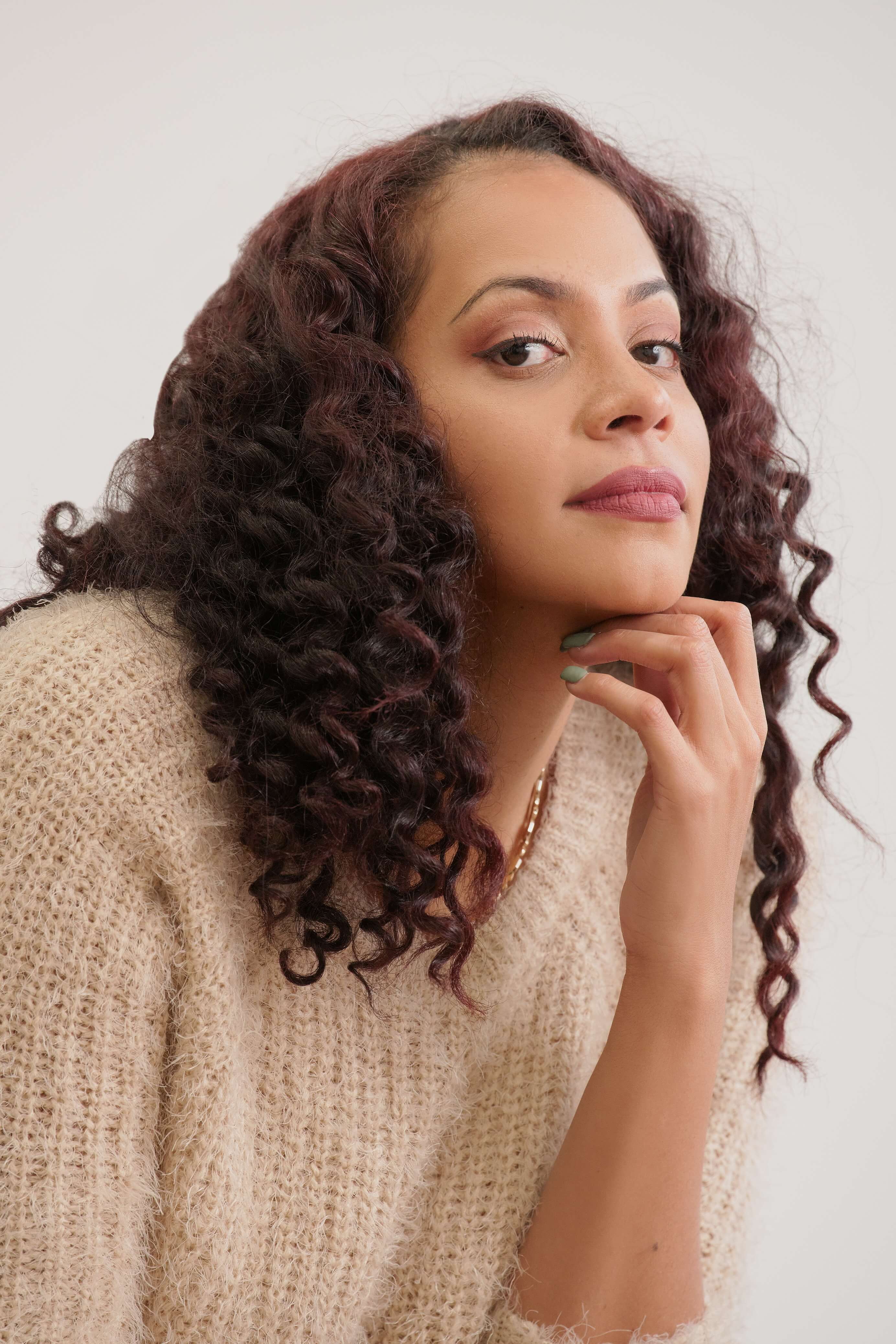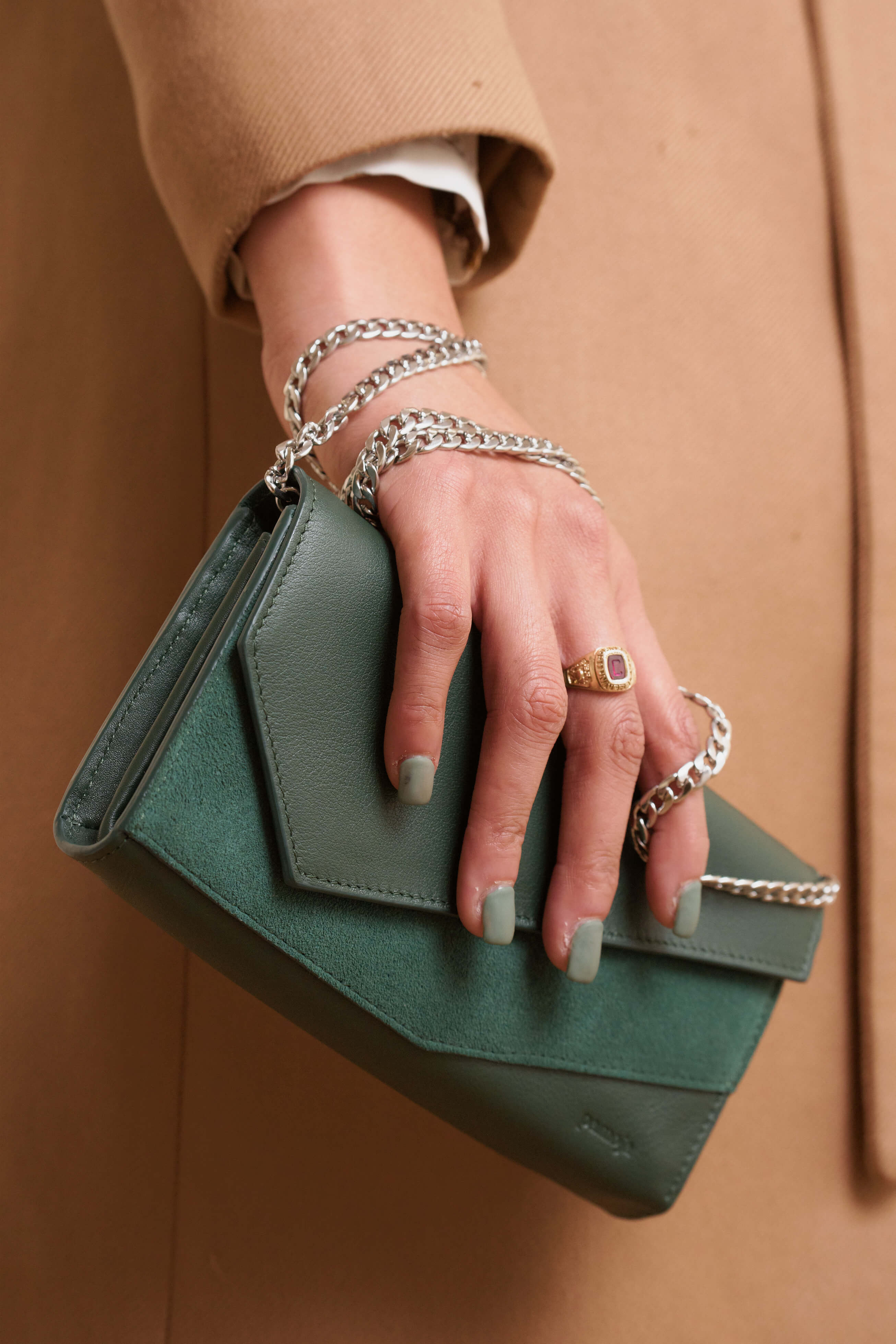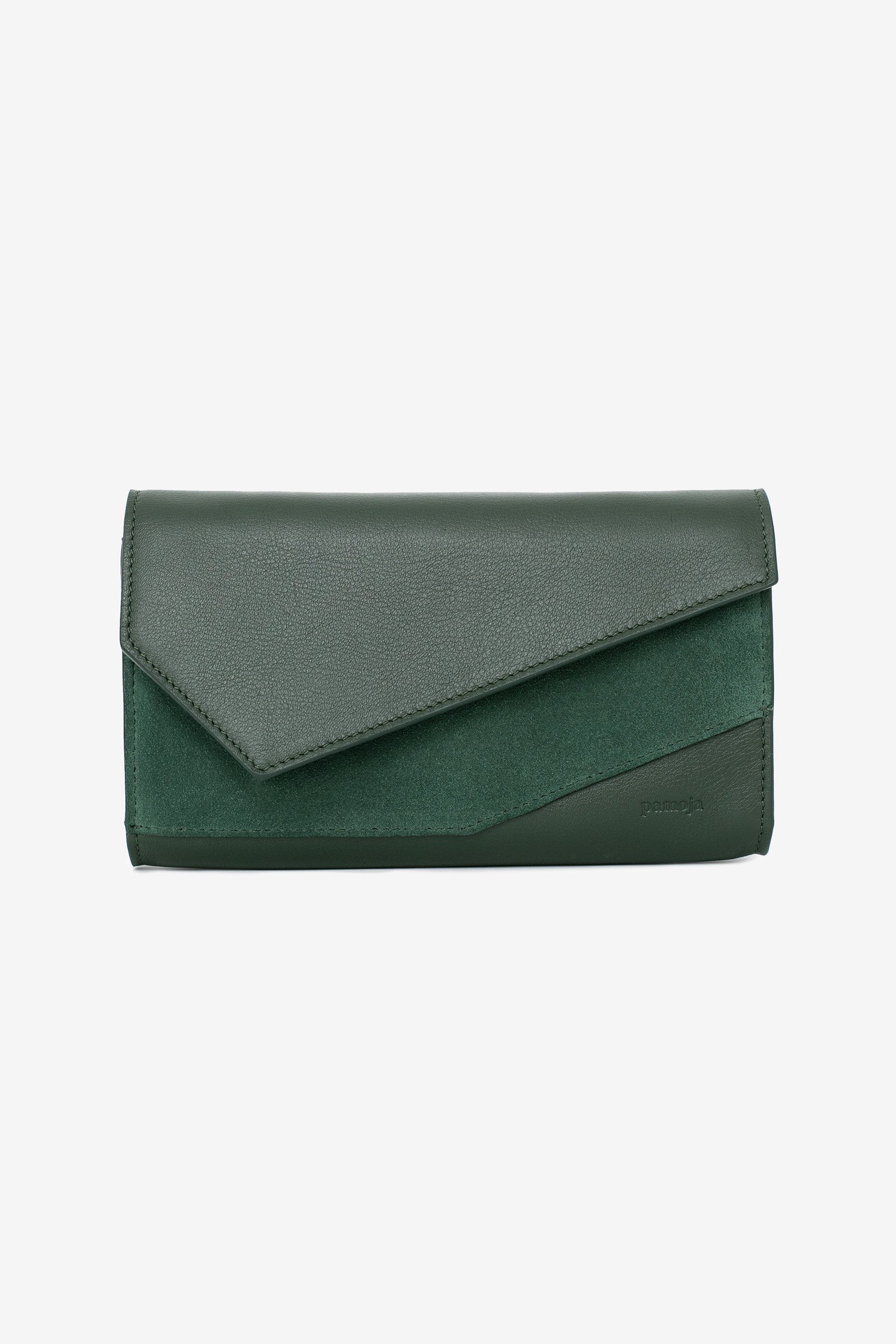03 | Christine Baptiste-Perez: I Am More, and I Can Do Anything. Why Not?
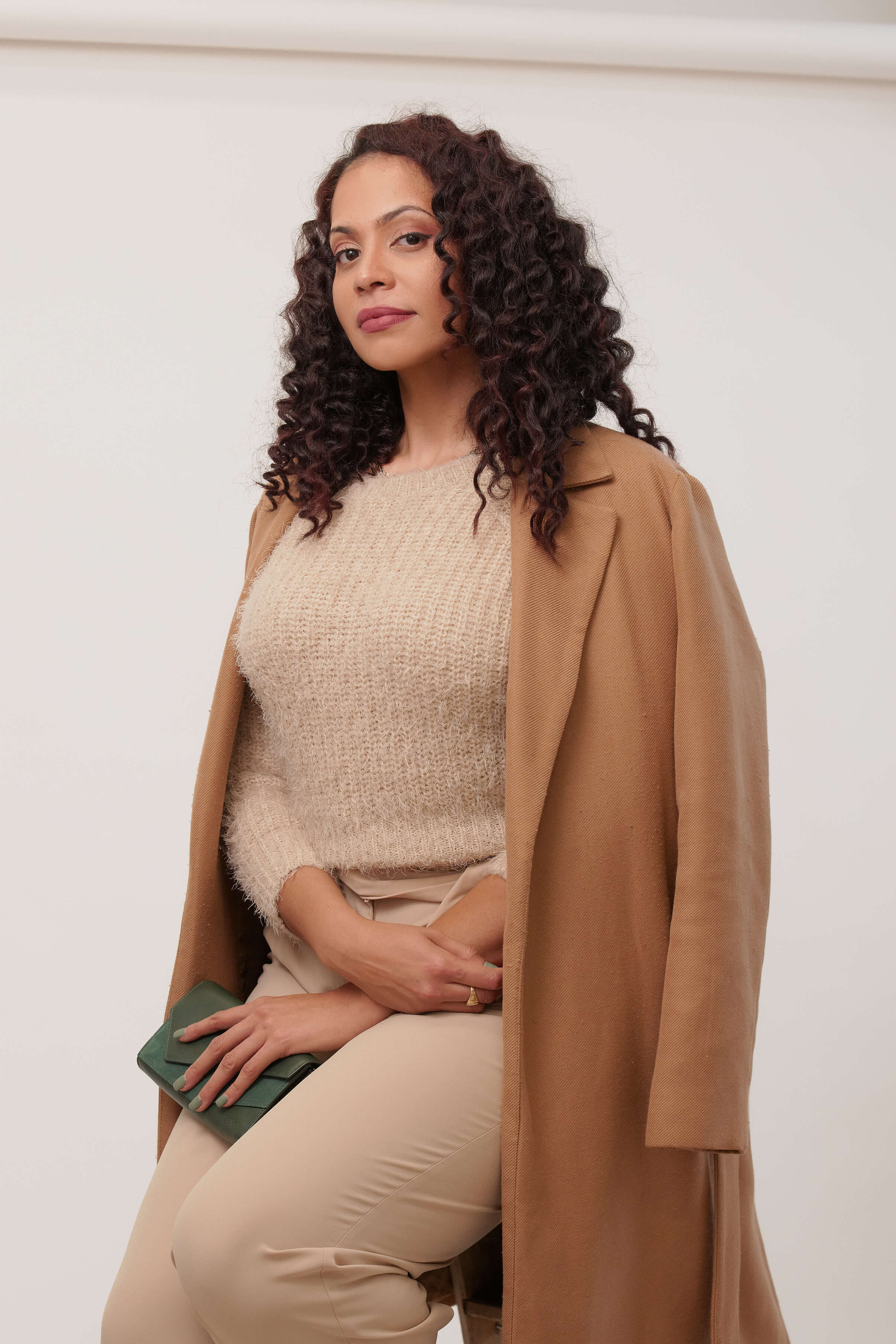
03 | Christine Baptiste-Perez: I Am More, and I Can Do Anything. Why Not?
In this conversation Christine shares her story. Originally from Brownsville, Brooklyn NY, Christine shares how the pursuit for higher education as a first generation college student was ignited by her father who pushed her to be the best and accomplish what he wasn’t able to do. A career in law was always in the cards, but Christine pivoted to a career in education with Teach for America after graduating in 2010 during a challenging economic climate. In a full circle moment, Christine currently serves as Vice Chair of Bridgeport, CT Board of Education while growing her litigation experience across multiple areas of law.
In this conversation, Christine reveals the complexities around identity and representation as a Black and Hispanic Woman, why breaking barriers and showing up is critical to inspire the next generation of leaders, and a quick glimpse into what’s next on Christine’s horizon.
Topics Covered:
- Being a first generation college student
- Identifying as Black and Hispanic in educational and professional spaces
- Creating purpose around passions in law and education
- Why representation matters across the board with lots of trails to be blazed!
- Mindset: I am more, and I can do anything
- Calendaring to balance among the many priorities in life
- Moving the needle through educational policy to support the next generation of leaders
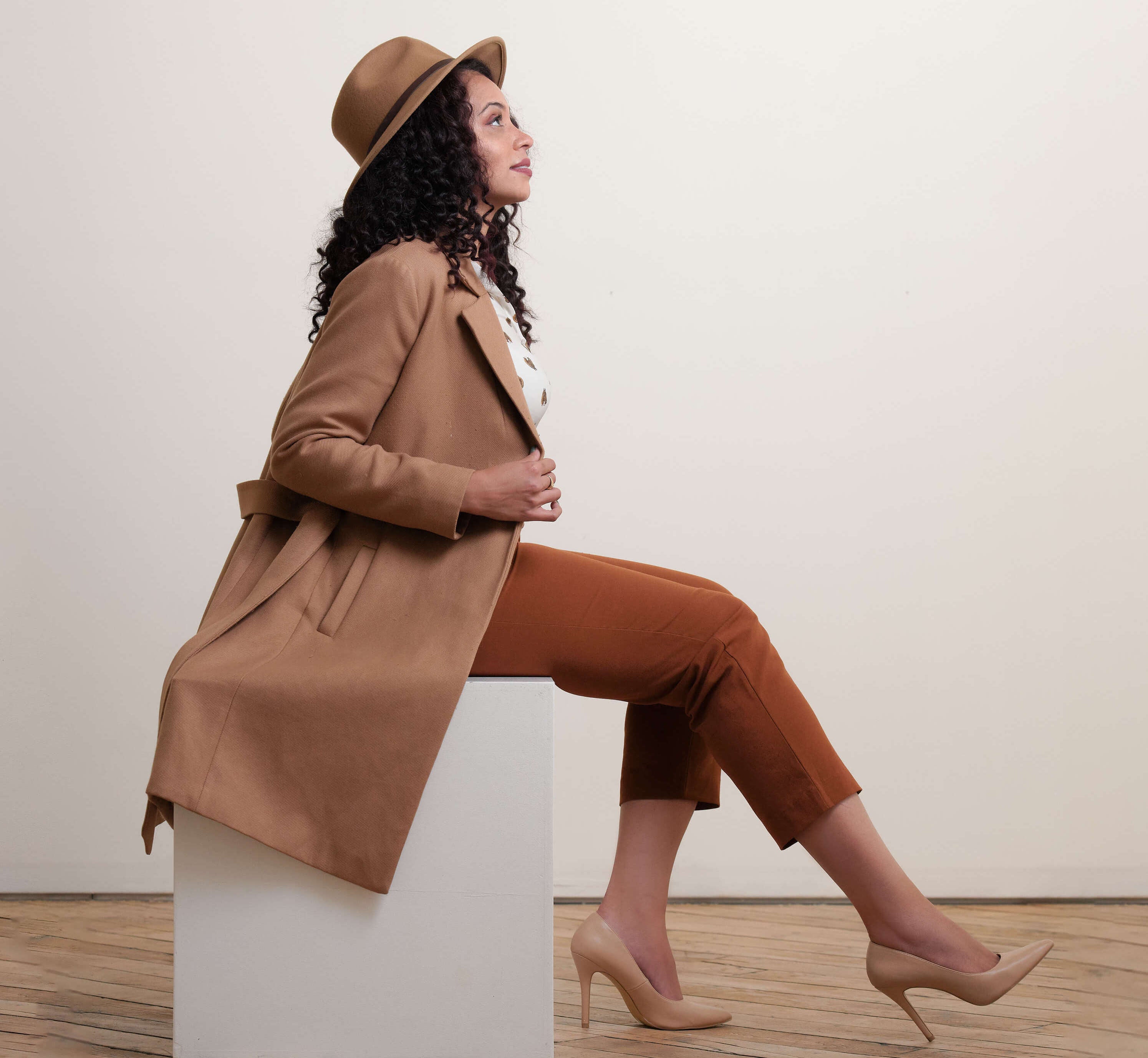
- Being a first generation college student
- Identifying as Black and Hispanic in educational and professional spaces
- Creating purpose around passions in law and education
- Why representation matters across the board with lots of trails to be blazed!
- Mindset: I am more, and I can do anything
- Calendaring to balance among the many priorities in life
- Moving the needle through educational policy to support the next generation of leaders
Explore Our Podcast
Transcript
Christine: I wanna have something seminal. I wanna argue before the Supreme Court. I want to advocate for that piece of law that's going to change lives.
Stephanie: I am Stephanie Evans, and this is Diaries of a Modern Trailblazer. Take note of the journey and be inspired to forge your own amazing path. I am so excited to have you, Christine, on this podcast today.
Christine: No, thank you.
Stephanie: Can you believe we've known each other for like, it just feels like forever.
Christine: Yeah. That was a good move. That was good. Not saying the number. Thank you.
Stephanie: So really, let's just start off from the beginning. Tell us about who you are, where you come from. Who is Christine?
Christine: Well, I'm Christine Baptiste Perez. I'm a mother. I'm a lawyer in Bridgeport, Connecticut. I hold multiple hats, but not to undermine my greatness, I like to just say I am a human being on a journey just trying to make my life and my community better. And so with that, I serve on Bridgeport's Board of Education as its Vice Chair. And there's a few other opportunities I'm looking to take on where it's going to give me more leadership in the community.
But I don't wanna put the cart before the horse with announcing those. But those are the three big roles. And as far as who I am, I'm a girl from Brooklyn. I'm originally from Brownsville, Brooklyn, New York. I am a first generation college student. I went to Cornell University where we met at an undisclosed date for the public. And really just trying to make the clients that I serve as an attorney resolve their legal issues and with the role with the board resolve issues in education for the city of Bridgeport. Being a mom, I think that's the most rewarding and the fun part.
Stephanie: So just taking a step back, you mentioned that you're a first generation college student. What, what drove you to pursuing higher education?
Christine: I was always motivated, first and foremost BY my dad. My mom was always there too, but my dad was the gasoline and the fire. He always pushed me to be, The nickname I have from him is, number one. He pushed me to be my best self and really ignited the competitive aspect. He always told me when I was little, I was gonna be able to accomplish what he wasn't able to. And so he was like, you're going to go to college, you're gonna go to one of the best universities in the world. And at that time he was like, you're gonna go to Harvard, but I think he just never heard of Cornell. So that always stuck with me, and I remember being a little girl and he was telling me I'm going to accomplish what he wasn't. And he would pretty much just have my back in doing it. That first indication of going to college came from him, and then I would really say it was amplified and supported by the educational community I was in. So my teachers were supportive and motivated and encouraging me to go to college, apply to the best schools, and not limit myself or the opportunities that I was presented with. So that's who I give a ton of credit to, my father. It was him and my family and then my teachers in school that really encouraged me to go to college.
Stephanie: So one of the things I don't think we really touched on is that you identify as black and Hispanic. And so I'm just curious, how do you balance representing both in your academic and your professional pursuits?
Christine: It's really, uh, somewhat complex. At Cornell, I have phrased one of my upper classmate writing requirements, one of the papers I wrote, I termed it instead of like, you know, the color of your skin, it's pigmented privilege to a certain extent. And you know, people are gonna identify you with how they see you initially, and I know from my physical features I favor my father, and that I am light-skinned with freckles. And depending on how I wear my hair, it could be curly, it could be straight. But I embrace my Trinidadian inside and the African diaspora and the story. Well, not the story, the history of how Africans were brought into the Americas, including the Latin America and the West Indies. I embrace both, and to a certain extent, I wanna be acknowledged as both because I feel that it, you know, how you identify is always going to be key.
I was born in America, so I fall into the category of African American, but my father's Puerto Rican, so I'm gonna also identify as Puerto Rican. I think one of the best things that's happening now is that this embraces to the idea of who I am. I am more than just what's beneath the eyes. And I'm more, complex and I think that's why a lot of people are trying to find out their backgrounds with like those genetic testings like ancestry. And I wanna embrace it because when I stand up in different capacities, there's still roles where I am still the only female in the room. I'm still either the only Hispanic Latino female in the room. And there's times where I'm the only Black person in the room. And so I, I appreciate those times where it feels like there's barriers to break through. I don't wanna ignore who I am because I think it's part of building up a generation. I'm experiencing this a lot right now with the Board of Ed, inspiring a generation, showing them that people before them who look like them, who are mixed like them, can do it so they can do it too. And so I get really, um, I really wanna acknowledge that I am mixed. And you know, both are equally important to me. Both are part of my identity, and I embrace, both sides. So I acknowledge it, I love it, and that's who I am.
Absolutely. And to that point, like what is your why behind what you've done thus far? And I know that there's just so much more for you to tackle along the way. And how have you seen it evolve as you've matured over the years?
Christine: When it comes to being a lawyer? I sound like the generic law school application, but I always wanted to do it. When I was younger, I was involved in debate, but I was also very passionate about education because in part with my father's influence. I started to realize in the area I was growing up, cuz I'm from the projects that people that look like me, I didn't see too many of them striving. And the first group of educated Black and Hispanic individuals in my life that were educated were my teachers. And I had one teacher in particular, Mr. Holmes, and he was Black and Puerto Rican. It was a great eye-opener and it also just to have a male teacher in the classroom was different, in terms of the drive, knowing that there weren't a lot of people in that look like me, aside from my teachers. In different fields like lawyers or doctors and that really had like an impact on us too. It's important to move forward, but also give back and show yourself because just in my presence alone, I can inspire.
So the why behind. Or why I've taken the path in life. It's almost like a why not. Why can't I lead? Why can't I run for vice chair of the board. Why not? There needs to be more people, in order to actually have a representation of this country, you need to have different people of different backgrounds in various leadership positions. You need a Black judge in the courtroom. You need a Hispanic judge in the courtroom. You need enforcement officers to reflect the community, probably even be from the community they're serving. There's a lot of appreciation and inspiration when you can see other people that look like you do it. And there's a lot of, I wanna say more like internal motivation for me to keep going, whether I'm the only female of color in the room.
I'm pushing for more than myself. And when I reflect on the number of barriers people of all colors in the United States have had to go through and experience, a lot of barriers came down just recently, like the generation before us, like our parents. And so there's a lot of trails to be blazed, no pun intended. And, and there's a lot of opportunities for women and women of color to take on leadership. We just got our first African American Supreme Court Justice. African American Female Supreme Court Justice, let me clarify that. So it's still hard to believe, but um, yeah, there's so many firsts. Like when I was in law school, I remember learning about the first, I forget the terminology, but like the first president or editor-in-chief of law review, the first African-American one, the first this, the first that. On the other side of the coin it's always been happening So, I think until all those first barriers have been knocked down, and as people we're truly equal in representation in different fields and areas, it has to be done, and I don't think it can be done with the mindset of just leaving. I believe in giving back, showing up, not just showing face, but showing up and, and really standing for what's right in creating opportunities and real equity.
That's the why, because why not? It needs to be done.
Stephanie: Yeah. And then just curious, how did your interest spark in pursuing a career around law?
Christine: I love to debate and argue. And so yeah, in high school I wasn't necessarily geared towards becoming a lawyer. I was re really good at math and sciences. I pat myself on the shoulder with that one cuz a lot of lawyers are not. I was in a neurology science competition.
What really got me into law, I did moot court in high school. I did mock trial in high school. I did debate in high high school and I did parliamentary debate and I love that. And I did, um, the model UN. Really, the model UN's a little bit more, not necessarily the law, but policy and international affairs. But I loved all those extracurriculars. Like it was something with the way you can argue, especially with the, the mock trial and moot court. I had so much fun. I'm like, I could totally do this. This is easy.
And then when I learned that I could major in anything in college and still go to law school, I was like, well, sign me up. I wanna do it. I just had so much fun. I think to a certain extent, as I get more experience with it, it's a little bit like acting, not necessarily acting, but presentation and storytelling, because you, as an attorney, I'm trying to, for example with the Board of Ed, I'm conveying a point, and it has to resonate with you, whether you are the jury, the audience, the angry constituent, the concerned parent. And I have to make it digestible. A common phrase I hear now is, make it make sense, but it has to be logical. It has to be reasonable and it just, it has to have appeal. And you have to have a presence to do it.
So, I loved the mock court trials in high school. You know, you're getting the witness on the stand to confess. This exposure to law related activities in high school solidified what I thought I wanted to be because, for me, growing up you are either gonna be a doctor, a lawyer, or a nurse, because those were the generic, good fields to be in. Once I got actual exposure, I wanted to continue to law.
Stephanie: And then not only are you doing that, but I've seen amazing photos of Christine strutting it out on the runway. How'd you get into modeling on the side?
Christine: I was discovered. But I came across my manager for modeling on the political trail. I was seeking endorsements from the Democratic party from different, uh, districts throughout the city of Bridgeport for the Board of Education seats. So I could be an endorsed candidate, which I was, and I was at an event in Black History Month and. Yeah, when I say people hold multiple hats, um, uh, the manager that was like, oh, you should get into it. I was like, eh, I, well, I, I know I am more than just how I look, but like, this could be fun. The manager, he was also the former vice president of the naacp and I saw that. A bunch of thoughts in the political process, but like I needed to, if I'm gonna run for office to know people, um, I need to get out and meet as many people as possible. And the idea of no bad publicity is better than no publicity. And I was like, uh, The, the opportunity to, it was the opportunity to walk during Juneteenth in the fashion show and I was like, sure, are you gonna mention that I'm a lawyer so I'm not just a pretty face and mention that I'm running for the board of Ed so I can get votes, Some people know who I am. And he was like, yeah, of course. Definitely. Um, because that was really what catapult me to say yes to the first fashion show I. I, I really just wanna run for office and I'm trying to build a network of community that's going to know who I am. And it's just been, it's been something fun to do in the background, um, uh, as some of the modeling opportunities. I, I really believe in the, I am more and I can do anything. I'm very goal oriented, so I had a goal, I'm gonna walk for Harlem Week. Okay. I didn't even have a goal of walking for New York Fashion Week, but I did and Times Square and then you don't know this part, but I just discovered it because I'm updating my vision board cuz I'm like, I need to, uh, I already got the first house. Yeah. I was like, I wanna do a photo shoot for a. And I was like, yes, it came And so I, I've had the opportunity to accomplish a lot of stuff that I want to in the hobby of modeling. Uh, It's all, I think in particular, the group that I'm in, the Faces of Beauty Model Team, it's also linked to a social mission. So we have toy drives, which I love because it's, it's like a two for one. Uh, you're doing something great for the community while, you know, getting toys and giving 'em out to the youth, but also it's, it's an opportunity to continue to meet my constituents. because the situation in Bridgeport is somewhat, it, it is not somewhat, it's dire. And, and so the opportunity to events where it's gonna get me out in the public and keep me humble into who I am serving and why I'm doing what I'm doing, um, to put others before myself and use the skills that I've gained to serve. It's, it's been a good experience and, and being part of that particular modeling group has enabled me to do it because like, there's so many more service oriented events that I jump up and volunteer for than actual fashion shows.
In addition, I will say this to it. You know, it's, it's brains, right? But the idea of the beauty aspect, I just think it's, it's all around a, a way of the greater feeling of giving back, um, you likes, like how people do stuff and then wanna take a picture like, oh look, I'm feeding the homeless and then put it up for likes. I, I don't care for that. That's me personally, but just knowing that like I have access to help out different organizations through a plethora of different platforms. I really love it. And then what person doesn't wanna feel beautiful from time to time? So I think the, the fashion shows are also just like another confidence boost to love who I am, how I look. Yeah. And the, the brands. The designers that I've walked for their body inclusive. So at no point have I ever thought, no, I can't walk in this show unless I lose 10 pounds. I am who I am. Uh, I'm sorry if I keep repeating that, but like, uh, it's a, it's a, the modeling stuff has had a plethora of awards that's, really good to me and also help me further love myself.
Stephanie: That's amazing. And like just tying back to what you mentioned earlier, I am more like you're a mom, you're an attorney, you have political roles. and then some, how are you balancing all those things and making sure that you're being thoughtful and impactful around every single one of those aspects of your life?
Christine: Uh, I calendar, and I prioritize, and I try to understand what's in my locus of control, like with my daughter. Her father and I we're working really good together now, and it's that balance, like when it's mommy time, I try my hardest not to have that conflict with any other activity because if not to anybody else, if, if no one else is gonna see or know who I am, she will. Before anybody else or any other child, the number one role model I have to be is to her and I see her mimic me, and it's, it's beautiful and scary at the same time. I mean, that's just Parenthood in general is like, oh my God. There's a little person, like looking to me for the answers and I don't know all the answers. Um, but as a parent it's like, I'm going to find a way. I, I think parenthood has definitely moved me towards a find a way mentality, and, and I've seen the benefits for my daughter. I've seen the benefits for me where I've been able to give her experiences in life that I didn't have as a child, and you know. Actually in a lot of the modeling events, she goes with me as well cuz there's child modeling opportunities and she wanted to do it. She saw me doing it and even with the Board of Ed that inspired her to run for student council. And I work hybrid, so the days where I do work from home, she's working too. And. It's a rewarding experience to see your children adopt healthy lifestyles and, and goals because they're watching it from you. Um, you know, as a parent, but even an outside, like, as a role model, it's always good to have like, you know, a good community because it, it takes a village. But yeah. I love the mom aspect. I'm just, I'm thinking about my daughter now, like, I'm so proud of her and she was the only, well see, look, talking about breaking barriers from early, uh, there was just an awards banquet for Caribe here in Bridgeport, and she plays basketball, oh, I don't know, Caribe. Uh, it is Bridgeport Caribe youth Leaders, and it's a nonprofit organization in Bridgeport and it offers sports opportunities, but there's an educational component to it as well. And so we had signed Gabby up to, that's my daughter's name. We signed her up to do the basketball program and they had like the end of the season banquet. I, I won't lie, I was really shocked when she was the, I, I, I had to, I would have to double check, but, um, maybe students weren't there at the banquet. But as far as students present at the banquet, she was the only female student to receive straight A's high honors That was on the basketball league. And then there was another child I know that was not there cuz it's her cousin. And he was the only boy to receive straight A's, and high honors, but he wasn't there. So, uh, even in that capacity, watching her stand up and be like, the only girl, like, uh, I want some girl power. I want more black girl magic. Like, what am I going to do? Because I was actually standing there, uh, all elected officials that were present at the banquet got to stand there and be with the children and give them their trophies and their certificates. And I'm like, we gotta, we gotta up the magic. We have to inspire. I was like, it's great. It's, you know, I, as a parent, I'm beaming, I'm proud, but because I'm holding other hats, I'm. Where's the rest of my Bridgeport public students? Where's the rest of my Bridgeport girls at?
Stephanie: And how do you focus on moving the needle there?
Christine: With my role on the board of Education, it's more policies and making sure that from the executive level it's being implemented, building to building. Um, It also takes showing up, uh, to let the students know you care. I mean, when I was a kid, I didn't know what a board of education was. I knew my principal, my teachers, the vice principal that was the community, but actually seeing members of the Board of Ed of no, uh, but being a member of the board. The policies and the leadership that's actually going to move this needle with the students. That's where I'm a part of. And whether it's a wellness in nutrition policy, being up to date to make sure the students are fed, so they come to school able bodied and, you know, ready to learn and not worried about food. Um, whether it's a policy for anti-bullying, but also making sure that on the district level teachers are equipped to know and are getting the professional development so they can actually manage their classrooms. Cuz strong classroom management will reduce chaos in the classroom. The kids are too busy learning to get into other stuff. Um, taking, the role from there cuz I don't think I mentioned earlier, but I used to teach and so a lot of the areas where I felt helpless as a teacher, I am on the policy arm now and as a lawyer, I can use that experience and hopefully I hope I am making the best policies and trying to actually show face to the, the entire city of Bridgeport Public School students and just students in general. I care because their success cuz they should be my future doctors, they should be my future business owners. they should be my future, um, trades, whatever I need. You know, it's, it's more than just doctors and lawyers. Right? It's cuz I was like breaking those stereotypes.
Stephanie: Right. They're the future period. All things positive
Christine: Yeah. All things positive and, and I want them to see that they are all things positive and that this, my generation, we're taking our time to invest in them. So, so that they can improve. Like I, it's, it's a buildup, it's a community buildup. And, they're still gonna be first, but like I said, until there's no more, first there's work to be done.
Stephanie: Yeah, most definitely. And then just taking a moment to reflect, um, It's still so much opportunity for growth and learning at this point in time. what would you tell the younger version of yourself based on where you're at?
Christine: If I could tell the younger version of myself one thing, everything's gonna be okay with God. Uh, I have had so many experiences that have kind of come full circle. Um, that's just been motivating. And at the time I was like, why am I going through this? Um, that, I'll go back to the teaching example. Cause we, we graduated a not so amazing market And I remember when I was graduating from Cornell, we were told, don't go to law school. It's a terrible idea. The the market and that that was in part, and I wanted to teach and I said, well, I was like, if this is not the time to go to law school, I'm going to teach. I did Teach for America and you know, I still wanted to.
Stephanie: And then where did you, you do Teach for America?
Christine: I taught in Baton Rouge. Well, no, I taught in Jackson. No, Felician. It's Felician. Oh my God. I haven't taught in so long. I'm forgetting where I taught in Louisiana, but I taught in Louisiana and it was, oh my God. Why am I drawing a blank? Well, that's how old I am.
Stephanie: Well, you taught in Louisiana.
Christine: Yeah, but I'm trying to remember the parish. I wanna say it was E Fe. It was East Feliciana Parish, which is about an hour north of Baton Rouge. I had lived in Baton Rouge and was commuting up to my school, um, and I taught high school Spanish. And part of the reason I had a why, why God moment. I had moved to Louisiana to teach middle school math. And so to get a change in the age of my students and a change in the subject matter, I was like, why? And I don't regret it. I feel like I may have dreaded it more back then. And I was like, if this was the case, this would be the policy and this is the requirements for teachers. And then I was like, well, I'm gonna be a lawyer, so I don't see how I'm going to actually implement that. But then I became a mother, and I'll tell you this. If one thing is gonna make you think about the education system ever again as an adult who's not in that field working, is having a child because where you live and where they go to school. That whole being young, single and, and that that changes and your zip code matters. And what are their testing performance? So all the, the things I learned in the policies from, uh, I was like, I would change if X, Y, and Z when I was teacher came full circle. When oh, I'm a parent now, and this is the conditions of the school and the neighborhood I grow. I, I mean, I'm living in. And I wanna live amongst people that look like me, but the schools are bad. And so I do, I just sit back and do nothing about it. I'm a lawyer now. Policy that's, I could do that. Reading, I could do that. Advocating for children, I'm doing that with my daughter. And when I look at my, the greater community and these children, they need advocates. That's actually gonna look well advocates, period. You care. You care. But I feel that I relate to the students and like I said, their success is critical because there's so many firsts in the Black and Latino community to be done. and, and we need to continue to move forward. And so I was like, there was a point like, why am I doing this God when I was in the twenties to, well, I'm a lawyer, but then I have a child. So no, this is an issue and I can get involved. And really, it's, it's balance and calendaring. I, I try to keep, as much as possible to my word. Even though sometimes I may double book, I try to make it happen. And on days like this, uh, where I have off, I'm, I've tried. I no way at one any point do I say I'm perfect. But am I passionate? Yes. Do I care? Yes. Do I wanna see success amongst my, my community? Yes. And I think those are key. And so, yeah. I'm trying, I. I let my younger self success in life is not linear because some of the biggest, absolutely. The biggest learning and lessons you're gonna get are from mistakes. You don't sit and go, dang, how did I win this case? Oh, I must have kicked butt winning this case or winning this argument. No. It's when you have to take that L and you're like, no, how do I become better? I don't wanna lose again, and I'm that kind of person I'll like, I wanna be better.
Stephanie: Right. I was working on a vision board and one of the things that I wrote down is I wanna build a new habit of seeing mistakes as learning opportunities. And, you know, it's, it's something I've sort of done in the past, but like when you're in it, a mistake is a mistake. And I find myself being hard. On myself, but at the end of the day, it is an opportunity to learn and build from it. Um, so I love that.
Christine: You brought that up and, it just reminded me of one of the cases I worked on and I had took over the case from another associate. And when I say that lawyer hit me with no mercy back and back, it was, I internalized it as like, I must have did something wrong, but I took it as, nah, I was gonna call myself something else just now. But nah, you got a game plan. You have to focus. You have to use it. And it worked out perfectly for my client in the end. And one of the things with like learning from that mistake, girl, when I say I had another client and I was like, oh, well I done learned the game plan, and was able to hit a motion out, very similar strategic tactic because I was like, I just seen this in motion and I was able to learn from that mistake and actually implement it as a strategy for another client. I love it. I mean it's, it's a. It's not easy, but I will say over the years learning to be more receptive to feedback, I, that's been just a big part in my legal journey. Um, cause I'm, I think it's just the competitive nature. It's like, okay, bet. Like okay, let's go. So do I like negative criticism? Baseless criticism? Unsubstantiated criticism? No, not at all. And I think it should be a distinguishment from that cuz you, but at the firm, we're all on the same team. On the board of Ed for the most part, we're all on the same team. And so a criticism that's going to help. Be a better advocate or a better attorney. Uh, I'm going to, I'm going to take it, internalize it and use it. Um, but I just also wanna like distinguish like there are some people that make comments that are just straight up from hate and are baseless and, uh, you, you are with time to your, how you're going to grow. and, and take stuff in and to a certain extent, um, know that
Stephanie: Yeah. Setting boundaries and filters.
Christine: Exactly. Yep.
Stephanie: And then as we wrap it up, um, just wanting to hear from you, what's next on the horizon for Christine? Like what all do you want to do?
Christine: What's next on the horizon? I definitely want, I could think career-wise, I definitely want more trial experience. Um, my goal is, and I was explaining this, like I wanna have something seminal. I wanna argue before the Supreme Court. I want to advocate for that piece of law that's going to change lives. Um, that's what I wanna do as an attorney. Uh, in terms for the board of Ed, I wanna be that fir if it's has not been done. And that's not to offend anyone that's was on the board before me, but there is a domino. and I've been very public and, and this is a situation in Bridgeport where we've had students in grades with a hundred percent failure. I was like, when I'm asking that no kid or, or that no school has a hundred percent failure in any grade and no a hundred percent failure for me, I think that's low. But I was like, if that's going to be the first domino to get everything in order. because I, I know of my limits, and I know Rome wasn't built in a day, but it was built. And so setting those standards, because it is not a, oh my God, standard. It is almost like what can you do? These are babies. These are, uh, I mean, especially for the non-high school students. and, and the particular example I'm bringing up is with a local, um, school very close to me where my daughter could have went to school, right? So there is a personal aspect to this, that these are my neighbor's children, and so I want to look out for my neighbors. So when I'm setting a goal for the board is that we implement support. We need to identify what's going on with the teachers. So that they're getting the support to support our students and, and all around the complexities towards student achievement. I wanna be that first domino. I wanna know that the policy that we worked on and reworking to make the board a stronger board going forward will actually have, uh, a return in our time and investment because it is an unpaid position, um, that I see more students success. Uh, you know, I, that's, that's really all I wanna see.
Stephanie: Yeah. And that's amazing.
Christine: And I mean, What's next? I'm open to the abundant opportunities that come my way. Um, what's next? Uh, I did allude to it earlier that I've been reached out by different organizations to join their boards and, you know, some self-reflection. Making sure I can balance, because it's not just about collecting titles, but actually putting in work. Uh, I am going to accept those roles and I'm pretty sure, uh, I know it is all going to work out. I'm telling this to my present form because I know in the, it's worked out in the past and so, yeah. Yeah. Why not?
Stephanie: Yeah. Keep going. I love it. I love to hear it. Well, thank you so much, Christine for sharing your time. Sharing your experience and sharing your wisdom with us.
Christine: Oh, thank you guys for having me. Oh, you're amazing. So, of course, when I would say your amazing Barry Barks, and you probably, I did hear Barry. Barry was showing his support too, but you're amazing. You are inspiring to me and. This is what I mean by like just uplifting each other because just presence, and being there and putting yourself out there, that's, that's inspirational. So I love you. Thank you for having me. And I'm actually gonna run over to one of my schools now.
Stephanie: Yeah. All right, cool. Well talk to you later.
Christine: Okay. Love you. A million.
Stephanie: And that's a wrap, so own it and make moves one day. I wanna share your journey on this podcast.






